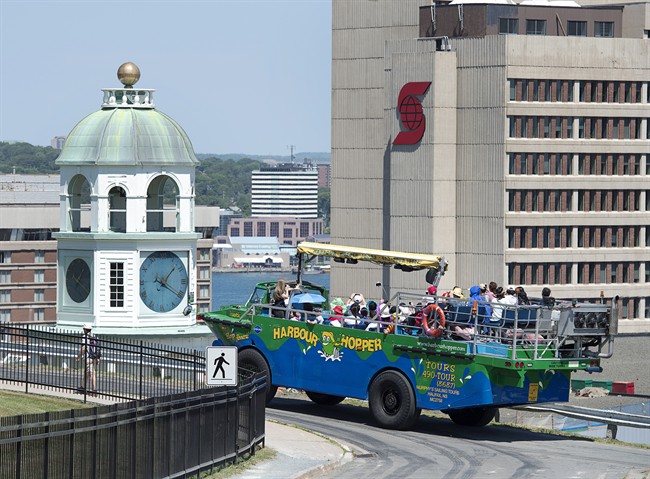Tourism industry leaders in Nova Scotia say they’re disappointed with the provincial government’s latest COVID-19 financial aid program, which targets the sector’s largest operators.

The $50-million initiative announced last week will back the loans of resorts, tour companies and sightseeing transportation operators with at least 100 employees, annual revenue of $10 million or more, and a loss in earnings of at least 50 per cent during the first wave of the virus, as compared to the previous year.
READ MORE: Large N.S. tourism operators receive boost from provincial decision to back loans
The program aims to ensure these operators receive better interest rates and more flexibility from banks, but industry representatives say that strict eligibility criteria excludes roughly 95 per cent of the province’s tourism sector businesses.
“It misses the mark in terms of what the industry is looking for,” said Darlene Grant Fiander, president of the Tourism Industry Association of Nova Scotia (TIANS).
“There are policy things governments can be doing to help the sector, stabilize it and look toward recovery, and this announcement of $50 million that’s going to benefit very few, in our opinion, is totally unacceptable.”

In news statement last Friday, Business Minister Geoff MacLellan said helping larger operators will benefit small and medium operators as well. He declined an interview on Wednesday, but in a written statement, said his department has been focusing on filling gaps in federal support.

Get daily National news
“These operators have large employee bases and financing needs. Some of them did not qualify for federal programming,” he explained. “Access to debt financing was identified as a key issue in our discussions with this group, while smaller operators indicated that taking on more debt is not the answer for them.”
He added that the 100-employee criterion is a “benchmark,” not an “absolute,” and the province is working on other possible supports for the sector, while lobbying for additional federal dollars.
READ MORE: Report looks into what Halifax tourism sector could look like in summer 2021
Patrick Sullivan, president and CEO of the Halifax Chamber of Commerce, said large tourism operators need financial support during the pandemic, just like everyone else, but it’s important that small and medium enterprises also be considered. That applies particularly to Halifax, he added, where the pandemic has dramatically increased unemployment.
“This is a specialized program,” he told Global News. “I’m not going to defend this program. This is is an opportunity for those large operators — we still need support for hotels, we still need support for restaurants, we still need support for hospitality operators across the province.”
Both TIANS and the Hotel Association of Nova Scotia (HANS) said they were not consulted on the development of the loan backing program or its eligibility criteria. If they had been, they explained, they would have recommended alternative approaches to supporting the struggling sector.

READ MORE: Calls from Nova Scotia tourism industry to relax rules around provincial borders
“We’re saying (the $50 million) could have been spent much better,” said Grant Fiander. “The cost of utilities, deferring interest rates on loans — things again, that are not costing a lot of money but would help businesses weather this storm.”
David Clark, an executive member of HANS and general manager of the Atlantica Hotel suggested the provincial government work with municipalities to adjust property tax rates to reflect revenues during the pandemic.
“Right now we’re paying property tax based on revenues from two years ago. Two years ago, revenues were fantastic,” he said. “Right now revenues are down upwards of 80 per cent compared to last year…so it’s putting us in a very difficult position.”

Tourism sector operators have been given less than a week to complete an ‘expression of interest form’ and email it to the Nova Scotia COVID Response Council at Dalhousie University, which will administer the program.
By email, the department clarified this expression of interest form is not an application, but an effort to assess the potential pool of applications and the demand for the program.
READ MORE: Nova Scotia reports no new cases of COVID-19 on Wednesday
The Tourism Sector Financing Assistance Program will not provide funds directly to applicants, but serve as a standby line of credit for applicants to show their banks when applying to take on debt of $15 million or less.
The Business Department says it will guarantee up to 95 per cent of the amount of cash borrowed and the program will be administered on a “first come, first served basis.”








Comments